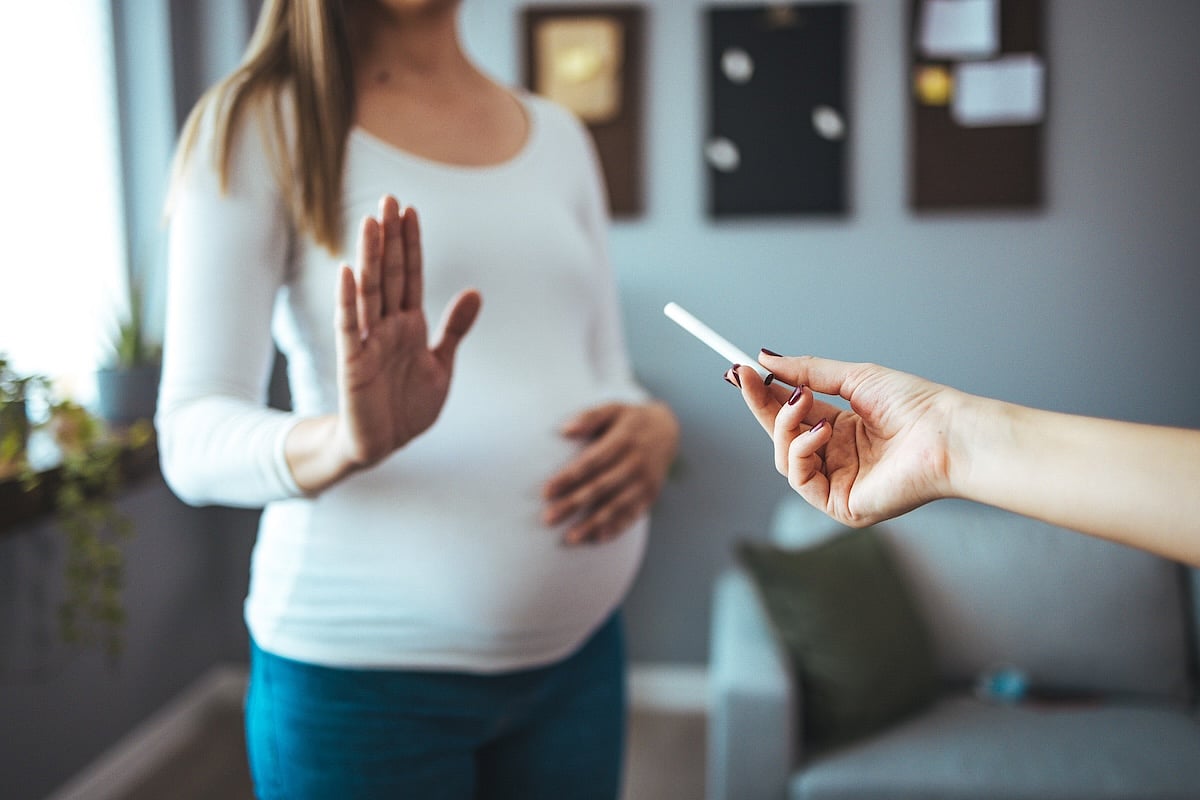Texting Now Available!
Anoka text # 763-265-7803 | Andover text # 763-878-7207
Elk River text # 763-878-8275 | St Francis text # 763-314-3312
Get Healthy!

- Dennis Thompson
- Posted August 21, 2024
Even 1 Cigarette a Day While Pregnant Can Harm Baby
Just a daily cigarette or two before or during pregnancy endangers the health of newborns, a new study warns.
Infants are 16% more likely to suffer major health issues following delivery if their mothers engaged in “light smoking” of one or two cigarettes a day prior to getting pregnant, researchers found.
Those newborns also have a 13% higher risk of landing in neonatal intensive care, results showed.
What’s more, these risks increase with the amount a woman smokes, and remain high even if she quits partway through her pregnancy, researchers found.
These results run counter to the belief by some women that it’s okay to smoke before getting pregnant or during the first three months of pregnancy, or that light smoking is unlikely to be harmful, researchers said.
“There is no safe period and no safe level of cigarette smoking shortly before or during pregnancy,” concluded the research team led by Dr. Bo Xi, a professor of epidemiology with Shangdon University in Jinan, China.
Doctors “should emphasize the detrimental effects of even light smoking before and during pregnancy,” the researchers added.
It’s estimated that about 1 in 10 pregnant women smokes in the United States, researchers said in background notes. Smoking during pregnancy is associated with a higher risk of preterm delivery, low birth weight and underdevelopment in the womb.
However, it’s not clear how the timing or intensity of a woman’s cigarette smoking might affect a newborn, either before or during pregnancy.
For this study, researchers analyzed U.S. data on more than 12 million mothers who delivered a baby between 2016 and 2019.
Just over 9% of moms said they smoked before pregnancy, 7% smoked in the first trimester, 7% in the second and 6% in the third, data show.
The research team then looked at whether newborns needed ventilation following delivery or treatment for lung problems, blood infections, seizures or serious neurological problems.
Any smoking at all -- before or during pregnancy -- increased the risk of these potentially fatal health problems in newborns, results show.
Overall, smoking before pregnancy raised a newborn’s risk of more than one neonatal health problem by 27%, while smoking during pregnancy increased the baby’s risk by 31% to 32%, researchers found.
Newborns were 24% more likely to require intensive care if their mom smoked prior to pregnancy, and 30% to 32% more likely if she smoked during pregnancy.
Even if a mom smoked one or two cigarettes a day, their baby had an increased risk of health problems -- and the risk increased with the amount an expecting mom smoked, researchers found.
For example, newborns had a 31% higher risk of health issues and 29% higher risk of needing intensive care if their mother smoked 20 or more cigarettes daily, compared with 16% and 13% increased risk for one or two cigarettes a day.
The new study was published Aug. 20 in the Journal of Epidemiology & Community Health.
Quitting midway through pregnancy didn’t eliminate a baby’s risk of health problems, either.
“Compared with never smokers before and throughout pregnancy, mothers who stopped smoking in each trimester of pregnancy still had a higher risk of infant [health problems],” the researchers wrote in the study.
More information
The U.S. Centers for Disease Control and Prevention has more on smoking and pregnancy.
SOURCE: BMJ, news release, Aug. 20, 2024

